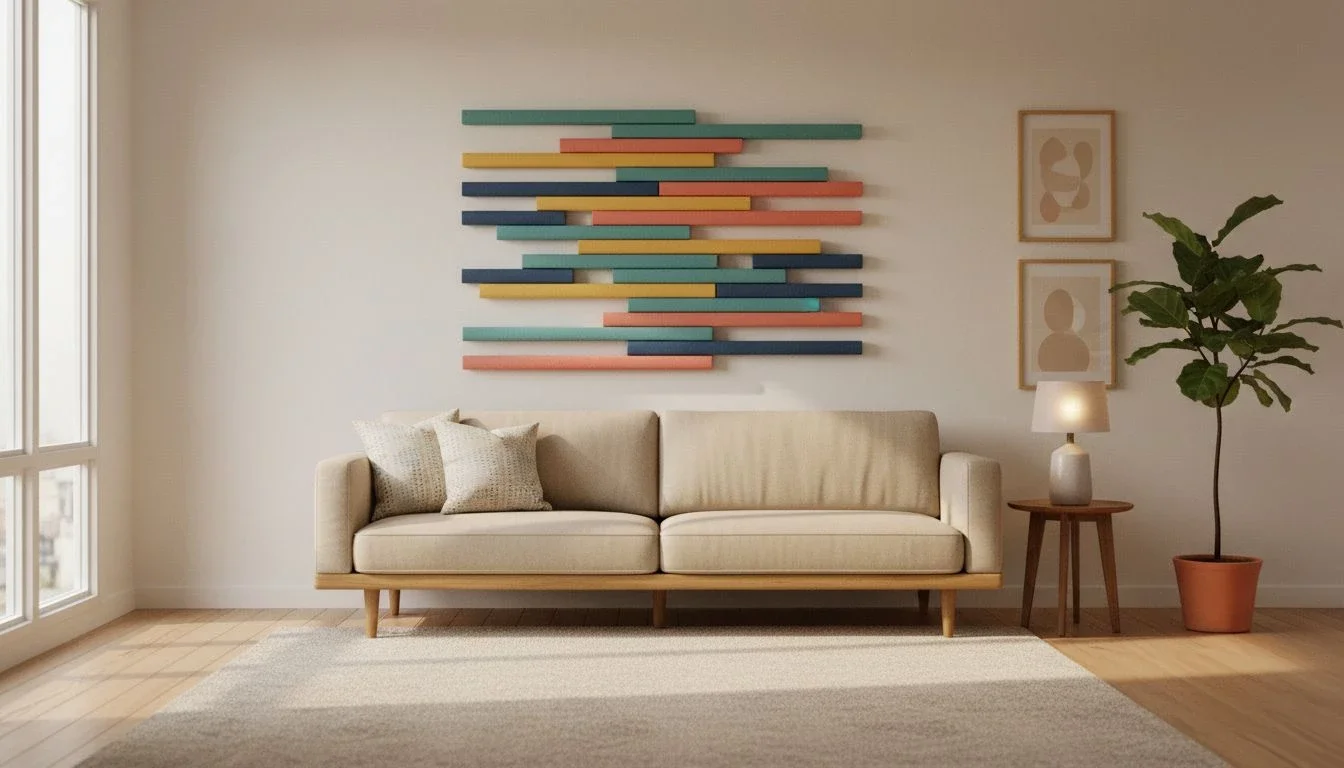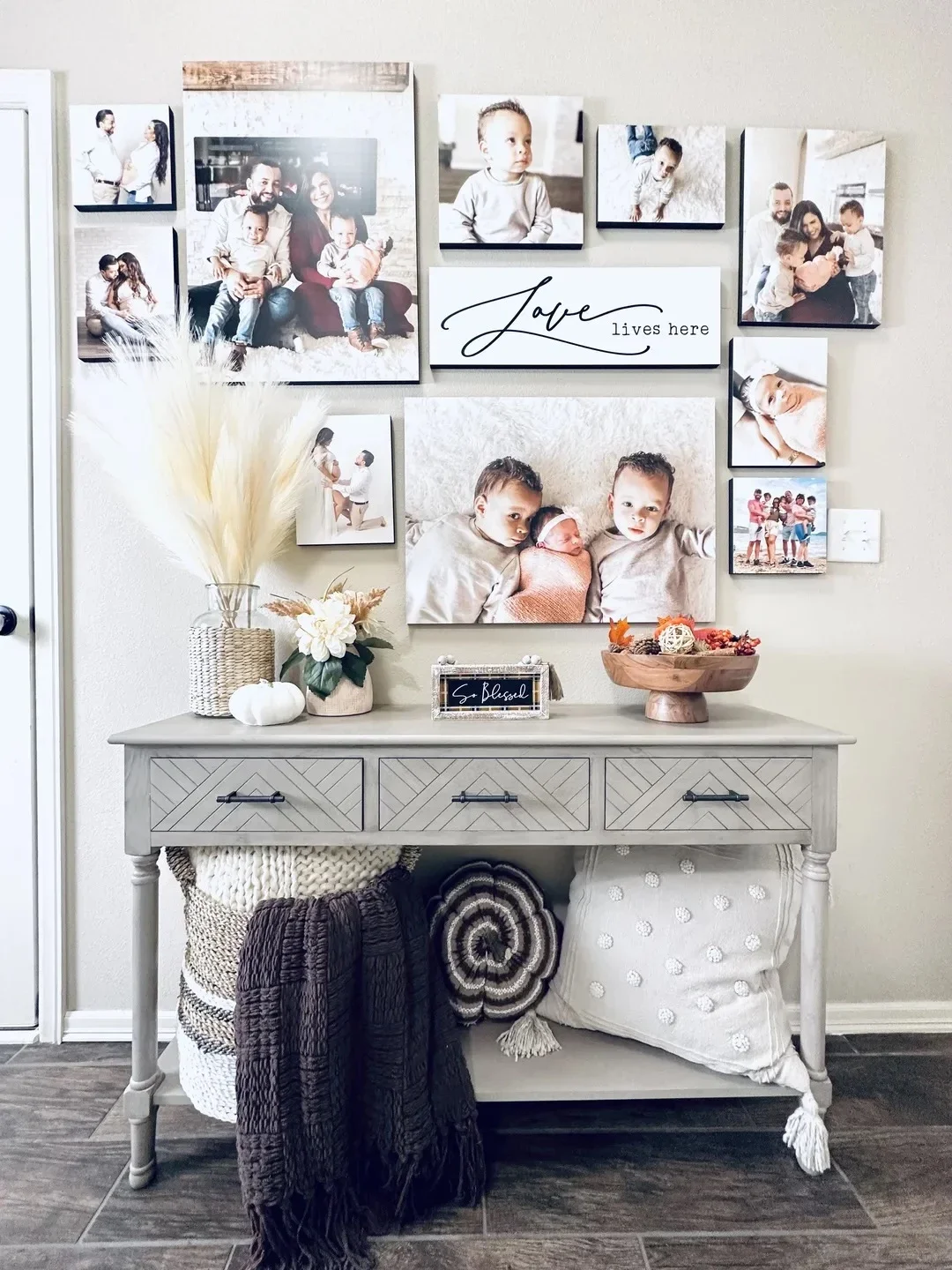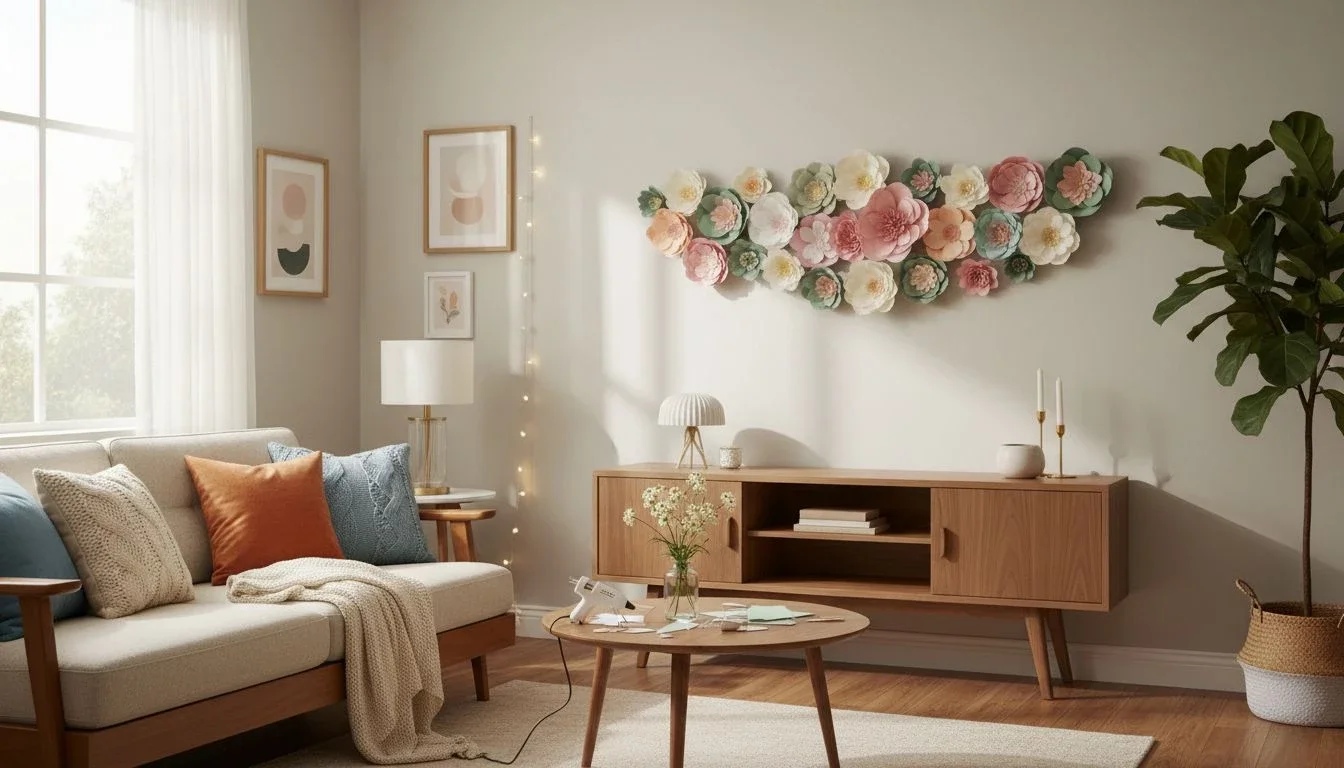How High to Hang Art on Wall: Simple Height Rules
Key Takeaways
- Aim for 57–60 inches (145–152 cm) from floor to the artwork’s center; then adjust for furniture, ceilings, and how you use the room;
- Above sofas, beds, and consoles, keep the bottom of the frame about 6–8 inches (15–20 cm) above the furniture; treat gallery walls as one piece and center that “whole”;
- Keep frames close: 2–3 inches (5–8 cm) between pieces for cohesive groupings; size art to span at least 1/2–2/3 the width of the furniture below;
- Mixtiles’ adhesive, repositionable frames make dialing in height easy. Hang, step back, adjust in seconds with no nails or damage.
Wondering how high to hang art on a wall without second-guessing yourself? Designers rely on a few dependable rules you can follow in any room. Start with the 57–60 inch “center height” guideline, then tweak for furniture, ceilings, and gallery walls. Below, you’ll find simple formulas, space-specific tips, and renter-friendly shortcuts using Mixtiles so you can hang confidently and adjust without patching holes.
Ready to hang pictures without nails? Create, order, and stick up Mixtiles photo tiles in minutes; they’re easy to use and repositionable with free shipping.
What’s the standard height to hang art on a wall?
Use 57–60 inches (145–152 cm) from the floor to the center of your piece as your baseline for hanging art. Think of this as art gallery “eye level.” If your household is taller or the space is casual, 60 inches often feels right; in rooms where you’re seated, nudging slightly lower can make viewing more comfortable for picture hanging.
Does ceiling height change the rule?
For 8–9 ft ceilings, 57–60 inches to center works beautifully. With 10 ft+ ceilings, you can go to about 60–62 inches, but keep the composition tied to nearby furniture so the hanging art doesn’t “float.”
How to place the hanging point precisely?
Find the center height first, then calculate the hook location based on your hanging hardware or wire drop so you hang your pictures accurately on the first try.
Use this quick formula for hanging picture frames precisely. You will need a tape measure and a pencil:
- Measure artwork height; divide by 2 to get the center point;
- Measure from the frame top to the tightened wire, D-ring, or picture hangers (hardware drop);
- Center target (57–60) + [half height − hardware drop] = hook spot from floor.
How high should art hang above sofas, beds, and consoles?
Keep the bottom of the frame 6–8 inches (15–20 cm) above the furniture so the art feels connected. Center the piece or grouping over the furniture, not the wall, for a balanced picture hanging system.
Above sofas and beds
Choose a single piece or tight pair that spans about 1/2–2/3 the furniture width. If your art is small, add companions or build a gallery wall so the scale is strong enough to anchor the room.
Above consoles, mantels, and dressers
Maintain 6–8 inches of clearance and watch lamp and decor heights to avoid overlap. If you want to hang a heavy mirror, choose heavy duty picture hangers or a picture rail hanging system.
How do you get gallery wall height and spacing right?
Treat the entire gallery as one piece: place its center at 57–60 inches. Keep frames close (2–3 inches (5–8 cm) between edges) so the grouping reads as an intentional “art gallery” rather than scattered items.
Layout tips that save time (and walls)
Map the layout on the floor or with paper templates, then transfer your center to the wall. With Mixtiles, hang the middle tile at your target center height first, build outward, and micro-adjust in seconds without drilling holes.
Need help choosing a layout? Try Mixtiles gallery wall kits: curated arrangements that are sure to turn blank walls into statement moments.
What size should your art be for the space?
Over furniture, aim for 1/2–2/3 the furniture width whether you hang pictures singly or as a grouping. On open walls, bigger usually looks better; in narrow spots, try vertical stacks. Use your phone to preview scale before hanging pictures.
Can you hang at the right height without nails?
Yes! Mixtiles photo tiles and canvas prints use peel-and-stick backs that can be used on most painted walls without drilling holes. For special cases like concrete walls, here are smart ways to hang:
|
Wall type |
Recommended way to hang |
Notes |
|---|---|---|
|
Painted drywall |
Mixtiles adhesive tiles; adhesive wall hooks; |
No nails, no fuss; reposition easily; check paint is cured. |
|
Concrete wall / brick |
Picture rail or picture hanging systems; masonry anchors; |
For pictures on concrete, hardware must work on concrete and be strong enough for weight. |
If you want to hang art on concrete or need help selecting a hanging system, ask a hardware pro which picture hangers will be safe and easy to use.
Once you know the 57–60 inch center rule (and when to adjust for furniture, ceilings, and galleries), you’ll never wonder how high to hang art on a wall again. Keep spacing tight, scale to furniture, and start at center for professional results.
Create and hang your pictures in minutes with Mixtiles. No nails, no drilling holes, just beautiful walls with free shipping. Start now at Mixtiles.com or in the Mixtiles app.
Frequently Asked Questions
What is the 2/3 rule when sizing art over furniture?
The 2/3 rule says your art should be roughly two‑thirds the width of the furniture it sits above. Over a 90‑inch sofa, aim for about 60 inches of art width (either one piece or a tight grouping) for a balanced, anchored look.
What’s the standard height to hang wall art?
The go‑to starting point is 57–60 inches from the floor to the artwork’s center. Use 57 inches for a gallery feel, 60 inches for most homes. In seated rooms, drop slightly; with taller ceilings or taller viewers, nudging to 60–62 inches can work.
How high should I hang art with 20‑foot ceilings?
In a room with 20‑foot ceilings, keep art at human eye level. Aim for a 60–62‑inch center on open walls. Over furniture, keep the bottom 6–8 inches above it. Scale up (larger pieces, vertical stacks, or tall gallery arrangements) to relate to the soaring height.
Can art be hung too high?
Absolutely. Hanging too high makes art “float” away from the room. Keep the center at 57–60 inches, and above furniture leave 6–8 inches of clearance. Treat gallery walls as one unit centered at eye level. Step back, adjust, and keep pieces visually connected.



Be the first to know — deals, news & decor ideas.
By clicking you agree to the Terms of Use & Privacy Policy
